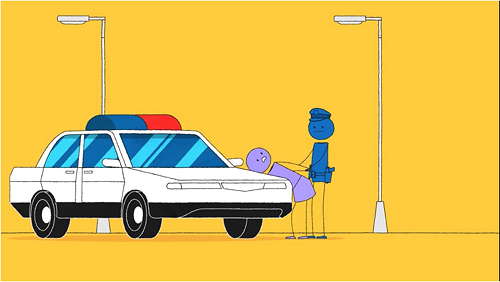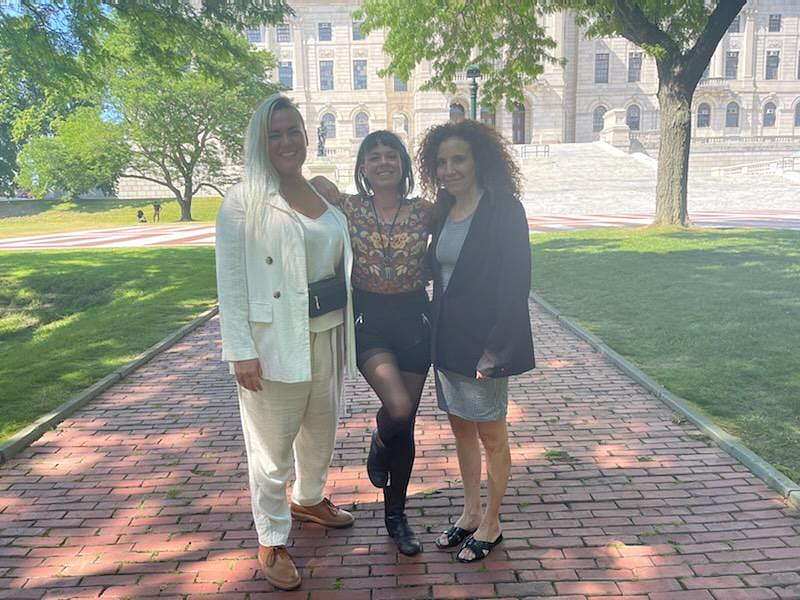June 20, 2022
Nine months after passing the legislature, a bill that would repeal a provision of California law that prohibits “loitering in public for the purpose of engaging in prostitution” is in Governor Newsom’s hands. He can veto or sign the bill into law — or let it become law without his signature. DSW was proud to collaborate with a broad coalition of groups and individuals to repeal New York State’s “Walking While Trans Ban” in February 2021. We applaud California advocates for their hard-fought victory in the state legislature and urge Gov. Newsom to sign the bill into law to bring a measure of relief to individuals who have been marginalized and persecuted for far too long.
The repeal of “loitering laws” now known as “Walking While Trans Bans” is long overdue in California and across the nation. “Loitering for the Purpose of Prostitution” (LPP) is a tool for discrimination rather than community safety. Loitering laws give police permission to profile, harass, and arrest individuals for non-criminal activities. As with stop-and-frisk and other loitering charges, individuals are not arrested for what they are doing, but for who they are. LPP is a violation or misdemeanor in multiple states and municipalities across the U.S. Statutes often define the charge generally as wandering, remaining, or spending time in a public space with the intention of committing a prostitution offense or promoting prostitution.
LPP is a discriminatory statute used by law enforcement to profile and harass individuals based on their race, gender, and/or stereotypes of what a prostitute looks like. Laws that prosecute intent — rather than action — allow law enforcement to enforce violations at their discretion, threatening equal protection under the law. As “stop-and-frisk” policies have been used to profile Black and Latinx individuals, LPP gives law enforcement an avenue to exercise disproportionately discriminatory profiling of transgender and cisgender women of color.
The history of the criminalization of LPP is one of discrimination and discretion used to target and control low-income women. The Chamberlain-Kahn Act of 1918, also known as the American Plan, implemented a public health program with the stated goal of combatting the spread of sexually transmitted infections amongst soldiers in the United States during World War I. In this “Forgotten War on Women,” the Chamberlain-Kahn Act allowed for the arrest and imprisonment of any woman who could be “reasonably suspected” of having a sexually transmitted infection (STI). A disproportionate number of those arrested were working-class women and women of color who were viewed as “a threat to soldiers’ moral hygiene.”
Under the American Plan, transgender and cisgender women were arrested and given invasive exams on the basis of poverty, racial profiling, rumors of prostitution, their dress being perceived as “morally questionable,” or simply walking alone in the wrong place at the wrong time. These exams were used as a pretense to convict women of prostitution and send them away for “rehabilitation.” The Chamberlain-Kahn Act continued to be enforced through the 1970s.
LPP laws and loitering statutes in general have been used to target people of color, transgender individuals, and those with previous convictions for occupying public spaces. Defendants across the country are overwhelmingly women, both transgender and cisgender. The specific focus on transgender women, and the impact of these laws, has been well documented. The Sylvia Rivera Law Project, based in New York City, found that 80% of its clients who identified as transgender women of color had experienced police harassment or false arrest based on suspicion of prostitution, often resulting in a conviction.
Like other laws that contribute to profiling for low-level offenses, LPP contributes to the revolving door of involvement in the criminal justice system. Individuals arrested once for a specific crime are then targeted over and over again as a result of their record.
Contact with the criminal legal system traps individuals in a cycle of fines, jail, and court dates that can be difficult to escape. In cases where there is no victim, individuals should not be saddled with the burden of a record that prevents them from accessing housing, employment, and other opportunities.
Watch and share our short video on LPP here.

DSW Newsletter #37 (June 2022)
Burlington’s Vote To Strike Language on Sex Work From City Charter Becomes Law

DSW Research and Project Manager Testifies at Legislative Study Commission

A Long Overdue Bill Repealing the “Walking While Trans Ban” Heads to Gov. Newsom’s Desk

DSW Staff Commemorates Pride

